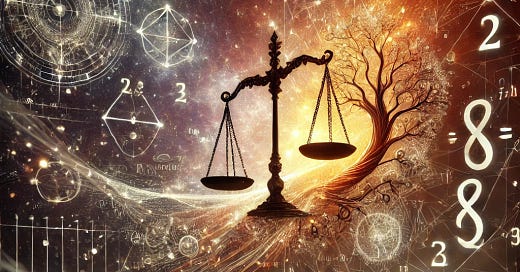Philosophy's Scope and the Author's Goal:
Philosophy spans an incredibly wide scope, but its increasing specialization and subspecialization often hinder interdisciplinary interaction.
The author seeks to bridge this gap by exploring the relationship between ethics and the philosophy of mathematics.
The Shared Question: Realism:
Both ethics and mathematics face the question of realism: are the objects of our thought and talk (e.g., numbers or moral values) "out there" in the world, independent of us?
Realism, in this context, is roughly defined as the idea that the subjects of discussion exist independently of human minds.
Naturalism and Its Challenges:
Scientists often adopt naturalism, being realists about the objects of natural science but anti-realists about values.
However, mathematics complicates this stance: physical sciences rely heavily on math (suggesting realism about mathematical objects), yet mathematical entities seem more akin to the abstract, non-empirical entities discussed in ethics.
The Central Question:
Can one be a realist about mathematics while being an anti-realist about morality?
Many philosophers say yes, but the author critiques their arguments as inadequate.
Ultimately, the author answers "yes," but only after challenging and rethinking the usual reasons for this position.
Roadmap to the Book:
Chapter 1: Introduces criteria for realism and distinguishes it from related ideas like objectivity, which is defined as questions that have only one unique answer.
Chapters 2 and 3: Argue against the idea that mathematical beliefs are more justifiable than moral beliefs based on a priori (reason-based) or a posteriori (experience-based) arguments.
Chapter 4: Rebuts genealogical debunking arguments (which trace beliefs to their origins to challenge their truth) as applied to moral realism.
Chapter 5: Builds on Chapter 4 by focusing on the "reliability challenge"—how beliefs can be reliable even if they arise from pluralistic or seemingly non-truth-tracking processes.
Chapter 6: Presents the core thesis: mathematics and morality differ in crucial ways. Specifically:
Mathematics is realist but its questions (e.g., “What’s the best method of proof?”) have different possible correct answers (i.e., they are not objective)
Ethics is non-realist but its questions (e.g., “What’s the morally right action?”), when they are practical ones, have only one possible correct answer (i.e., they are objective )
This distinction allows for mathematical realism alongside moral anti-realism and provides a framework for categorizing other disciplines.
Broader Implications:
By the end, the book will not only justify the compatibility of math realism and moral anti-realism but also will shed light on the epistemological and metaphysical structure of other fields.
Discussion about this post
No posts




